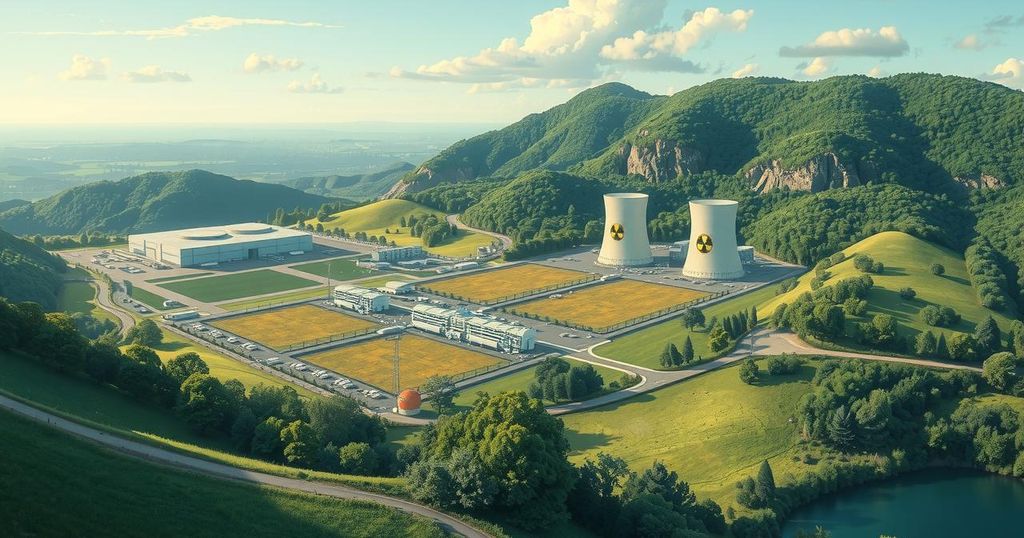Syria has agreed to give UN inspectors immediate access to suspected nuclear sites. IAEA head Rafael Mariano Grossi expressed optimism about inspections and noted interest in nuclear energy from President al-Sharaa. The agency aims to clarify past nuclear activities, with potential support for Syria’s health system post-conflict, amidst broader regional nuclear energy developments.
Syria has agreed to allow immediate access for United Nations inspectors to sites previously linked to its nuclear activities, according to a statement from the International Atomic Energy Agency (IAEA) chief. Rafael Mariano Grossi announced this development during an exclusive interview on Wednesday in Damascus, where he met with Syrian President Ahmad al-Sharaa and other officials.
In the interview, Grossi noted President al-Sharaa’s interest in potentially pursuing nuclear energy for the country in the future, suggesting an openness to this direction. The IAEA’s goal is to clarify past activities that might relate to nuclear weapons programs, and Grossi expressed optimism about concluding inspections in a matter of months.
Grossi pointed out that since the fall of former President Bashar Assad in December, the agency has been working to regain access to locations tied to Syria’s nuclear program. Previously, an IAEA team visited some of these sites in 2024 while Assad was still in power, but comprehensive access had been cut off prior to that.
Under Assad’s regime, Syria was thought to have a secretive nuclear program, including a reactor constructed with North Korean help in Deir el-Zour province. This reactor, which was not designed for power generation, raised alarms that Syria could be attempting to develop nuclear weapons. The facility was only exposed after Israel’s airstrike in 2007, which destroyed it, and subsequent efforts to engage with the IAEA had been largely unresponsive.
Grossi mentioned that inspectors will revisit the Deir el-Zour reactor along with three other related sites. Additional locations under the IAEA’s oversight include facilities in Damascus and Homs, which process uranium. He emphasized the IAEA’s intent to refine its focus on sites of real interest as part of the inspection process.
While there’s currently no evidence of radiation leaks from these sites, Grossi highlighted concerns about possibly unaccounted enriched uranium, which could be subject to illicit activities. He described al-Sharaa’s willingness to cooperate positively, indicating he’s receptive to allowing inspections to proceed.
Aside from inspection resumption, the IAEA is set to offer equipment for nuclear medicine and to assist in reviving health systems that have been significantly damaged by over a decade of civil conflict. Grossi noted interest from al-Sharaa to explore nuclear energy options in the coming years.
In the broader context, several Middle Eastern nations, including Saudi Arabia and the UAE, are investing in nuclear energy. Grossi indicated Syria might consider smaller modular reactors that are less expensive and more feasible compared to traditional larger reactors.
On another note, Grossi addressed the ongoing U.S.-Iran nuclear negotiations. He underlined that while the IAEA is not directly involved in these talks, it will play a crucial role in guaranteeing any agreement reached. He shared that he has maintained constant communication with the involved parties, expressing cautious optimism about their commitment to reaching a deal despite notable disagreements on issues such as uranium enrichment.
“There’s a genuine desire for agreement, which is quite a shift,” said Grossi, reflecting on his extensive experience in diplomatic negotiations.
In a significant move, Syria is set to allow UN inspectors access to former nuclear sites amid a new governmental openness that hints at possible future nuclear energy development. The IAEA aims for clarity regarding prior nuclear activities, with Grossi expressing optimism about resuming inspections and supporting Syria’s health system. The nuances of global nuclear negotiations, particularly with Iran, further highlight the complexities involved.
Original Source: www.ksat.com






